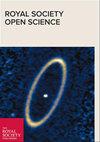Provide proactive reproducible analysis transparency with every publication.
IF 2.9
3区 综合性期刊
Q1 MULTIDISCIPLINARY SCIENCES
Royal Society Open Science
Pub Date : 2025-03-05
eCollection Date: 2025-03-01
DOI:10.1098/rsos.241936
引用次数: 0
Abstract
The high incidence of irreproducible research has led to urgent appeals for transparency and equitable practices in open science. For the scientific disciplines that rely on computationally intensive analyses of large datasets, a granular understanding of the analysis methodology is an essential component of reproducibility. This article discusses the guiding principles of a computational reproducibility framework that enables a scientist to proactively generate a complete reproducible trace as analysis unfolds, and share data, methods and executable tools as part of a scientific publication, allowing other researchers to verify results and easily re-execute the steps of the scientific investigation.
求助全文
约1分钟内获得全文
求助全文
来源期刊

Royal Society Open Science
Multidisciplinary-Multidisciplinary
CiteScore
6.00
自引率
0.00%
发文量
508
审稿时长
14 weeks
期刊介绍:
Royal Society Open Science is a new open journal publishing high-quality original research across the entire range of science on the basis of objective peer-review.
The journal covers the entire range of science and mathematics and will allow the Society to publish all the high-quality work it receives without the usual restrictions on scope, length or impact.
 求助内容:
求助内容: 应助结果提醒方式:
应助结果提醒方式:


